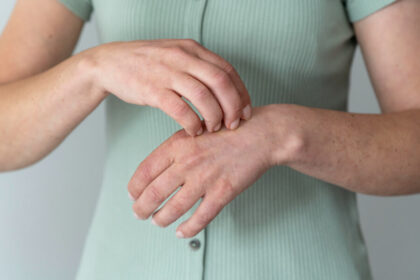Maintaining proper hygiene is crucial for overall health and well-being, and this extends to every part of the body, including the penis.
Yet, discussions about penile hygiene are often overlooked or disregarded.
In reality, practicing good hygiene habits for the penis can help prevent infections, discomfort, and promote better sexual health.
Your penis is a delicate organ, and it’s important to take care of it.
Good penile hygiene can help prevent infection, irritation, and other problems.
Why is penile hygiene important?
Penile hygiene is important for several reasons. Here are some key points to consider:
- Preventing infections: Good penile hygiene helps reduce the risk of infections, such as balanitis (inflammation of the glans) or urinary tract infections. Regular cleaning ensures the removal of bacteria, sweat, and dead skin cells that can accumulate in the genital area.
- Managing smegma: Smegma is a natural substance that can build up under the foreskin in uncircumcised males. If not properly cleaned, smegma can cause unpleasant odors, discomfort, and potential infection. Keeping the area clean helps prevent the accumulation of smegma.
- Reducing the risk of sexually transmitted infections (STIs): Proper hygiene is crucial in maintaining a healthy genital area and can contribute to the prevention of various STIs. Washing the penis before and after sexual activity can help minimize the transfer of bacteria and STI-causing pathogens.
- Personal comfort and confidence: Good penile hygiene is essential for personal comfort and overall well-being. Regular cleaning can eliminate sweat, odor, and discomfort, leading to improved self-confidence and a more positive body image.
- Overall genital health: Maintaining proper penile hygiene promotes overall genital health. It allows for the early detection of any abnormalities, such as rashes, sores, or changes in skin color, which may indicate underlying health issues that require medical attention.
- Keep it clean: Gently wash the penis with warm water and a mild cleanser every day. Avoid using harsh soaps or aggressive scrubbing, as this can cause irritation.
Potential Penis Health Concerns
Here are some potential penis health concerns that individuals may encounter:
- Erectile Dysfunction (ED): Also known as impotence, ED is the inability to achieve or sustain an erection firm enough for sexual intercourse. Several factors can contribute to ED, including physical conditions, such as diabetes, cardiovascular disease, or hormonal imbalances, as well as psychological factors like stress or anxiety.
- Peyronie’s Disease: This condition involves the development of fibrous scar tissue inside the penis, causing it to curve or bend during an erection. The exact cause of Peyronie’s disease is unknown, but it can result in pain, discomfort, and difficulties with sexual activity.
- Premature Ejaculation (PE): PE refers to the condition where a man experiences ejaculation sooner than desired, often resulting in unsatisfactory sexual experiences for either partner. PE can have psychological or biological causes, and treatment options are available to help manage and overcome it.
- Balanitis: Balanitis is the inflammation and infection of the glans (head) of the organ. Poor hygiene, bacterial or fungal infections, skin conditions, or irritants can contribute to balanitis. Symptoms may include redness, swelling, itching, pain, and discharge.
- Phimosis: Phimosis occurs when the foreskin is too tight and cannot be retracted over the tip of the organ. This can lead to hygiene difficulties, discomfort, and potential complications. Treatment options can range from topical treatments to circumcision, depending on the severity.
- Sexually Transmitted Infections (STIs): Numerous STIs can affect the organ, such as chlamydia, gonorrhea, syphilis, genital herpes, and human papillomavirus (HPV). Practicing safe sex, including the use of condoms and regular STI testing, is essential for preventing and managing these infections.
Here are seven simple hygiene rules for a healthy penis:
- Practice safe sex: Use condoms during intercourse to reduce the risk of sexually transmitted infections (STIs). Ensure that condoms are used correctly and replaced after expiration.
- Keep it clean: Gently wash the organ with warm water and a mild cleanser every day. Avoid using harsh soaps or aggressive scrubbing, as this can cause irritation.
- Urinate after sex: After sexual activity, urinating can help flush out any bacteria that may have entered the urethra during intercourse, reducing the risk of urinary tract infections (UTIs).
- Hydrate: Drinking plenty of water helps maintain overall urinary tract health, preventing issues such as dehydration and UTIs.
- Proper protection during physical activities: Use appropriate protective gear, such as a jockstrap, during activities that could lead to injury or excessive friction to the genital area.
- Avoid irritants: Steer clear of harsh chemicals, dyes, or fragrances found in soaps, lotions, or laundry detergents that could cause irritation. Opt for hypoallergenic or unscented products instead.
- Regular check-ups: Schedule regular check-ups with a healthcare provider to monitor for any signs of infection, inflammation, or abnormalities. Early detection and treatment are essential for maintaining organ health.
Here are some additional tips:
Pull back the foreskin to wash and dry underneath. If you have an intact foreskin, gently pull it back to wash and dry underneath with warm water and mild soap.
This is important to prevent smegma buildup, which can cause infection and odor.
Wear clean, dry underwear. Cotton underwear is best, as it allows your organ to breathe. Avoid wearing tight underwear, as this can trap moisture and create an environment for bacteria to grow.
Avoid using douches or scented products in your genital area. These can disrupt the natural balance of bacteria and pH in your vagina, which can lead to infection.
See a doctor if you notice any changes in your organ.
If you notice any changes in the appearance, size, or shape of your organ, or if you experience any pain, discomfort, or discharge, see a doctor right away.
How to wash your penis
To wash it, follow these steps:
- Wet your organ with warm water.
- Apply a mild soap to your hands.
- Gently wash your organ, including the glans and the foreskin, if you have one.
- Be careful not to scrub, as this can irritate the skin.
- Rinse your organ with warm water.
- Pat your organ dry with a clean towel.
If you have an intact foreskin, be sure to pull it back to wash and dry underneath.
This is important to prevent smegma buildup, which can cause infection and odor.
Conclusion
Practicing good hygiene is essential for maintaining a healthy organ.
By following these 7 simple hygiene rules, you can significantly reduce the risk of infections, unpleasant odors, and other penis-related issues.
Remember to regularly wash your genitals with mild soap and warm water, paying attention to all areas.
Avoid using overly harsh or scented products, as they may cause irritation.
Keep the area dry and ventilated, as moisture can contribute to the growth of bacteria or fungi.
Additionally, wearing clean and breathable underwear, practicing safe sex, and avoiding sharing personal items are crucial aspects of penile hygiene.
It is also important to monitor any changes or abnormalities and seek medical attention if necessary.
By prioritizing proper hygiene practices, you can promote a healthy and comfortable organ for a lifetime.
You can check our other articles to know more Here
FAQs
How often should I wash my penis?
It is recommended to wash your organ daily with warm water and mild soap.
Keeping the area clean helps prevent buildup of sweat, bacteria, and odor.
Should I use scented soaps or shower gels on my penis?
No, it is best to avoid using scented soaps or shower gels on the organ.
These products can cause irritation and disrupt the natural pH balance of the genital area.
Stick to mild, unscented soaps to prevent any potential issues.
How should I dry my penis after washing?
After washing, gently pat the organ dry with a clean towel.
Make sure to dry the area thoroughly to prevent any moisture or excess humidity, which can promote the growth of bacteria or fungi.
Are there any specific hygiene practices for uncircumcised individuals?
For uncircumcised individuals, it is important to gently retract the foreskin and thoroughly clean the glans (head of the organ) and the inner fold of the foreskin.
Rinse with warm water and avoid using harsh soaps or excessive force while cleaning.
Can using talcum powder be harmful to the organ?
Yes, talcum powder may not be suitable for use on the organ. It can cause irritation or lead to bacterial or fungal growth.
It is recommended to avoid using talcum powder in this sensitive region.
Are there specific sanitary practices for sexual partners to prevent infections?
Yes, practicing safe sex, using condoms, and maintaining proper genital hygiene can help prevent the spread of sexually transmitted infections (STIs).
It’s important for both partners to maintain good hygiene habits.





